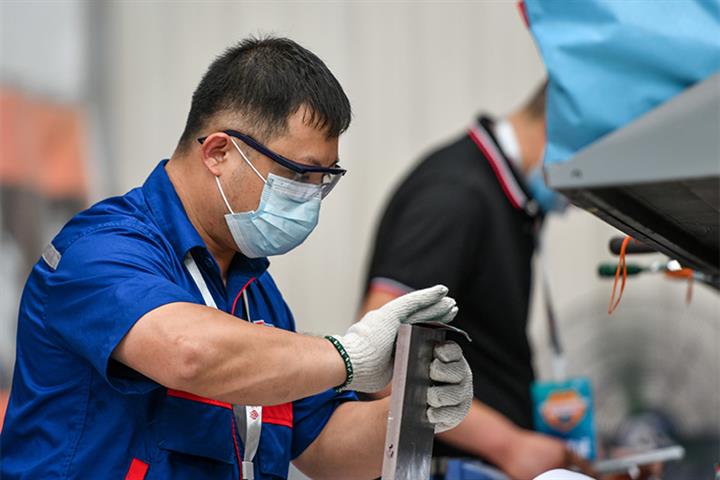 China’s Blue-Collar Workers Are Ageing, Lack Top Skills, Report Shows
China’s Blue-Collar Workers Are Ageing, Lack Top Skills, Report Shows(Yicai Global) Jan. 6 -- China's blue-collar workforce, those people mainly in manufacturing and services, are getting on in years, with an evident shortage of advanced skills, according to the results of a recent study by a Chinese university.
About half of the country's 400 million blue-collar workers are aged over 40, the report recently published by Capital University of Economics and Business showed. The average age of China’s 747 million working population is 38.8 years.
Manual workers over 50 account for as much as 28 percent of the total, while those aged between 31 and 40 and between 41 and 49 making up 22 percent and 20 percent, respectively, according to the report. People born after 1990 are less willing to take blue-collar jobs.
The young generation of manual workers born in the '90s and 2000s have higher employment requirements, said Zeng Xiangquan, director of the China Institute of Employment Research at Renmin University of China. There is a gap between what they want and working conditions that has not been completely solved in the short term, Zeng added.
A blue-collar worker’s average monthly income is CNY6,078 (USD884), per the report. Sixty percent have wages of between CNY5,000 and CNY8,000 a month, with those earning less than CNY5,000 accounting for 9.1 percent. Manual workers who take home more than CNY10,000 a month (USD1,455) account for 15.2 percent of the total.
Despite China’s labor shortage, these workers still have a hard time finding long-term employment, said Zhang Chenggang, director of the China New Employment Research Center of the Capital University of Economics and Business. During manufacturing off-seasons or when demand drops due to external factors, it is still difficult for blue-collar workers to get suitable jobs, he noted.
In addition, there is a severe shortage of advanced skills among blue-collar workers, Zhang pointed out, adding that most firms want to hire people who have had at least a middle school education and know the English alphabet. But some workers still lose their jobs due to lack of knowledge.
“The transformation and upgrading of China's manufacturing and service industries need more educated blue-collar workers to improve labor productivity and service levels,” the report said “Improving the skills of blue-collar workers and promoting the upgrade of ordinary workers to skilled workers is the guarantee for the transformation and upgrading of the manufacturing and service sectors.”
Editor: Futura Costaglione